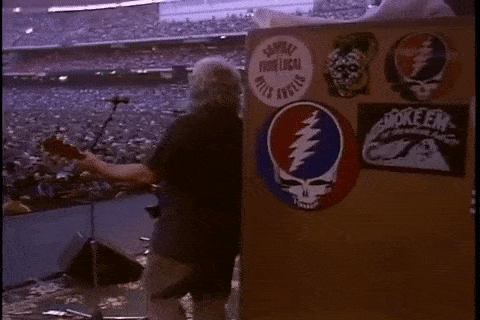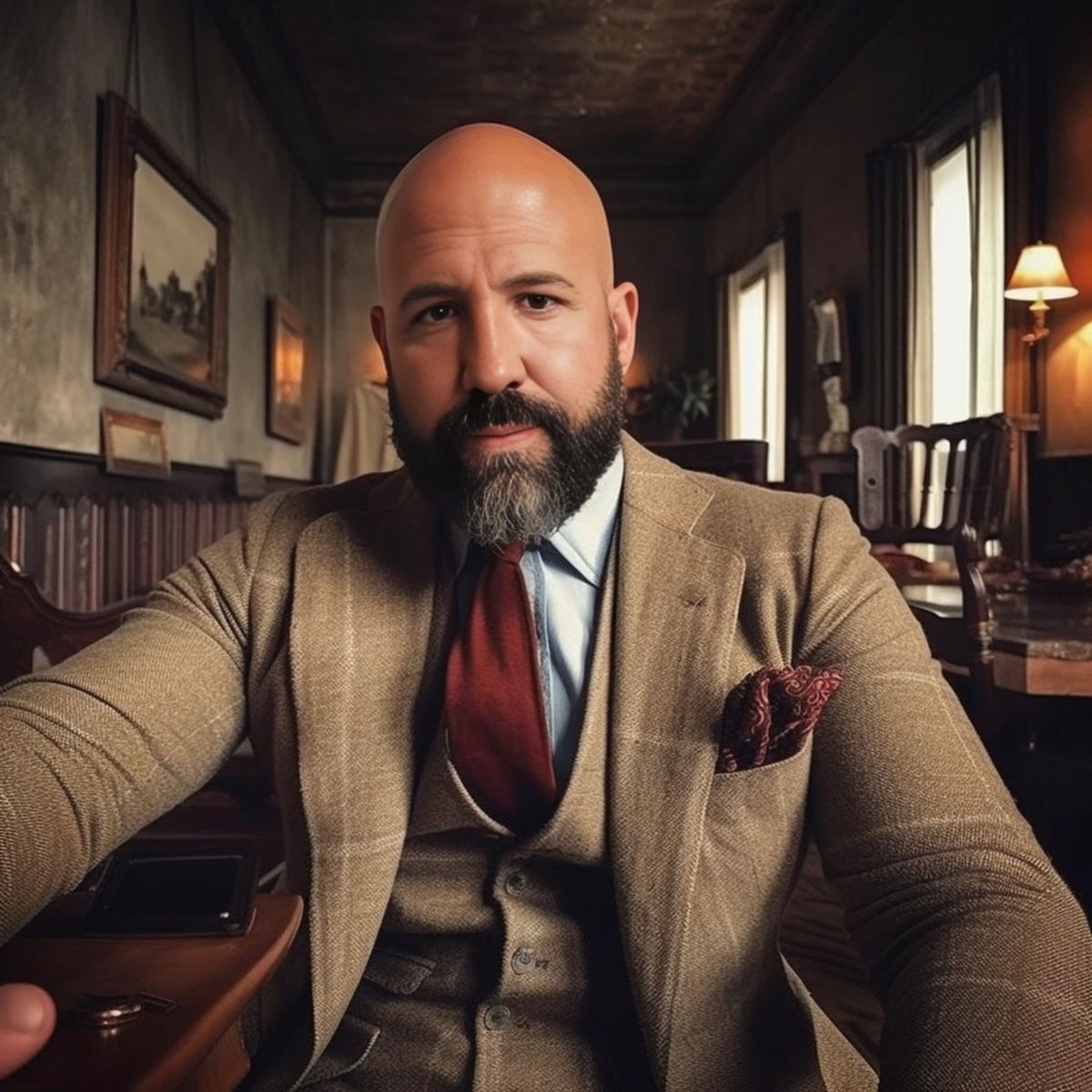Did you know the Grateful Dead was on the “internet” before the internet was a thing? They also pioneered modern concert sound, digital rights and licensing, MP3s, online communities, and mail-order ticketing, among other things.
Crazy, right?
Let’s take a trip down this rabbit hole 👇🌈🐰🕳️
The Grateful Dead, often remembered for their psychedelic music and counterculture ethos, were also pioneers in technology and innovation. Their influence extended beyond music, shaping the digital landscape we know today.
From the early days of ARPANET to the Electronic Frontier Foundation (EFF), from the first online communities to the development of the MP3, the Grateful Dead and their fans played a pivotal role in the development of the internet, online communities, and decentralized distribution models.

Here's a quick rundown of how the Grateful Dead influenced technology and innovation:
🎤 Pioneering live concert recordings: The Dead encouraged fans to record their shows, creating a vast network of tape traders who shared and distributed recordings. This culture of sharing laid the groundwork for the live concert recording culture and the bootleg trading scene, as well as being a precursor to Creative Commons Licensing (more on that in a minute)
🎪 Paving the way for the modern concert industry: The Grateful Dead revolutionized live music experiences with their relentless pursuit of high-quality sound and visuals. They were dissatisfied with the inadequate sound systems of the 1960s and embarked on a journey to create a better listening experience for their audience. This led to the development of the "Wall of Sound," a massive, intricate sound system that laid the foundation for today’s modern concert sound systems.

🌐 Embracing digital technology and the internet: The Grateful Dead was among the first bands to embrace the internet, launching their website in the late 1990s and exploring new business models. But before that, they were instrumental in the early use of ARPANET, the precursor to the modern internet, for sharing information about the band. This early digital network allowed fans at Stanford and MIT to exchange setlists and tapes and even engage in activities like selling pot, marking the beginning of a digital Deadhead network. This culture of sharing and community was not only innovative but also led to the collaborative and open nature of the internet as we know it today.
🎟️ Pioneering mail-order ticketing: To combat ticket scalping, they developed a mail-order ticketing system, ensuring genuine fans had access to tickets. This system allowed fans to purchase tickets directly from the band, reducing the influence of ticket brokers and ensuring a more equitable distribution of tickets.
📜 Releasing music under Creative Commons licenses: In 2005, the Grateful Dead released their album "Grateful Dead from the Mars Hotel" under a Creative Commons NonCommercial Sampling Plus 1.0 License (CC NC ND). This was one of the first instances of a major artist releasing music under a Creative Commons license, paving the way for future artists to share their work more freely. This open-source approach to music laid the groundwork for the Creative Commons ethos.
💻 Influencing the development of online communities: The Grateful Dead were among the first bands to recognize the potential of the internet for fostering a community. They utilized early online forums and bulletin board systems to communicate with fans, laying the groundwork for modern social media practices. Their engagement with The WELL (Whole Earth 'Lectronic Link), one of the earliest virtual communities, is a prime example of this. Founded in 1985, The WELL became a hub for free thinkers and digital pioneers, including members of the Grateful Dead, to discuss a range of topics from music to technology, further emphasizing their role in digital community building.
🌍 Contributing to the EFF and cyberlibertarianism: The band's lyricist, John Perry Barlow, co-founded the Electronic Frontier Foundation (EFF), championing digital rights and freedoms. The Dead's communal spirit directly influenced the fight for an internet that remains open and free.
🔄 Decentralized distribution models: The Grateful Dead and their fans pioneered the direct-to-fan model and decentralized music distribution, freeing the band from the control of record labels and anticipating the digital culture of file sharing and direct artist-fan interactions. They were also directly involved in the development of the MP3 format and supported the idea of digital music sharing, influencing the way music is distributed and consumed today.
The Grateful Dead's innovative spirit and community-driven approach have left a lasting impact on the music industry and tech industry alike and continue to inspire artists and creators today. Their legacy is a testament to how creativity, innovation, and a commitment to community can drive progress across multiple domains. 🎸🌟🎧
Want more content like this? Sign up for our FREE weekly newsletter!


